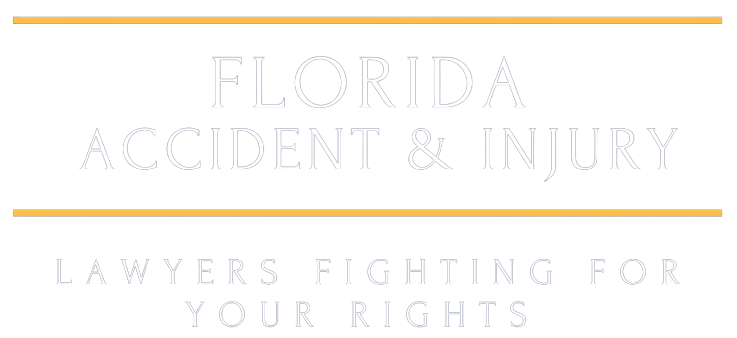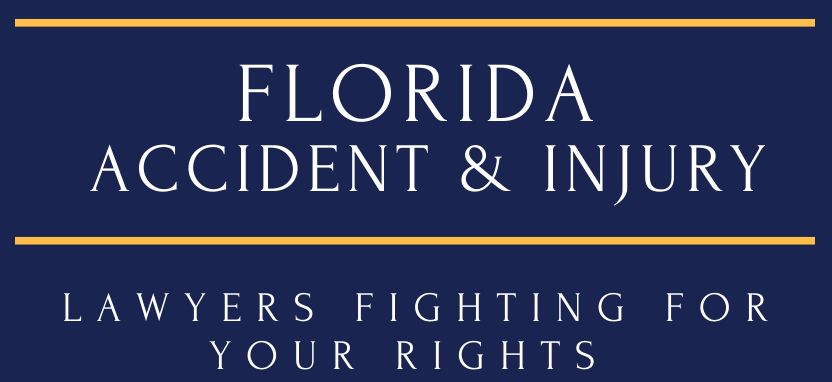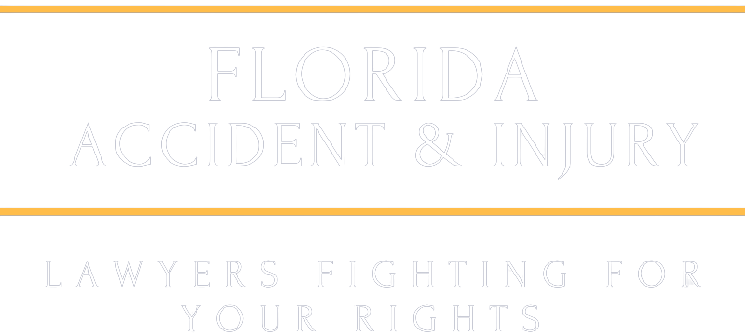
Understanding Negligence in a Personal Injury Case
As Florida Accident Injury Attorneys, we understand the devastating effects of personal injury cases. Negligence is a legal concept that is critical in determining liability and damages in personal injury cases. Negligence occurs when someone fails to exercise reasonable care, harming another person. Understanding the elements of negligence is essential in building a strong case and ensuring fair compensation for damages. Contact our attorneys for assistance if another party’s recklessness or negligence injures you. Elements of Negligence Negligence consists of four key elements that must be proven in a personal injury case. They are as follows: Duty of care: Every person has a legal duty to act reasonably and avoid causing harm to others. Breach of duty: If someone fails to meet the expected standard of care, they have breached their duty of care. Causation: The breach of duty must directly cause the plaintiff’s injuries. The plaintiff must show that their injuries would not have occurred but for the defendant’s breach of duty. Damages: The plaintiff must have suffered actual damages, such as physical injuries, emotional distress, or financial losses, as a result of the defendant’s breach of duty. Understanding these elements is crucial to proving negligence in a personal injury case. An experienced Florida personal injury attorney can help you navigate the complexities of negligence law and build a strong case. Types of Negligence In addition to the four elements of negligence, three main types can affect a personal injury case. They are as follows: Comparative Negligence In Florida, if the plaintiff is partially responsible for their injuries, their compensation may be reduced by their percentage of fault. For example, if the plaintiff is found to be 30% at fault for a car accident, their compensation will be reduced by 30%. Contributory Negligence This type of negligence is not recognized in Florida but is still used in some states. Under contributory negligence, if the plaintiff is even 1% at fault for their injuries, they are barred from recovering any compensation. Gross Negligence This is a more severe form of negligence that involves a willful or reckless disregard for the safety of others. In Florida, if the defendant is found to have acted with gross negligence, the plaintiff may be entitled to punitive and compensatory damages. Understanding these types of negligence is critical in building a successful personal injury case. An experienced Florida personal injury attorney can help you determine which type of negligence applies to your case and how it may affect your compensation. Examples of Negligence Negligence can occur in a variety of situations. Some common examples of negligence in personal injury cases include: Car Accidents Negligent driving behaviors such as speeding, distracted driving, and drunk driving can cause car accidents and serious injuries. Slip and Fall Accidents Property owners must keep their premises safe for visitors. Negligent Maintenance, such as failing to clean up spills or repair hazards, can lead to slip-and-fall accidents. Medical Malpractice Healthcare providers must provide their patients with a certain standard of care. Negligent actions, such as misdiagnosis and surgical or medication errors, can result in serious injuries or even death. Product Liability Manufacturers must ensure that their products are safe for consumers. Negligent actions, such as failing to warn of potential dangers or releasing defective products, can lead to serious injuries or even death. Understanding the specific type of negligence involved in your personal injury case is essential in determining liability and seeking compensation. An experienced Florida personal injury attorney can help you evaluate your case and identify the responsible parties. Negligence and Damages In a personal injury case, damages are the monetary compensation awarded to the plaintiff for the harm they suffered due to the defendant’s negligence. Different types of damages may be available in a personal injury case in Florida, including: Economic damages: These are quantifiable damages, such as medical expenses, lost wages, and property damage. Non-economic damages: These are damages that are more subjective and difficult to quantify, such as pain and suffering, emotional distress, and loss of enjoyment of life. Punitive damages: These are damages that are awarded to punish the defendant for their gross negligence or willful misconduct. Calculating damages can be complex and require an evaluation of various factors, such as the severity of the injuries, the impact on the plaintiff’s life, and the cost of medical treatment. An experienced Florida personal injury attorney can help you accurately calculate your damages and seek fair compensation. Understanding negligence is crucial in building a strong personal injury case. By identifying the elements, types of negligence, and the damages available, you can determine the liable party and seek appropriate compensation. Seeking the assistance of an experienced Florida personal injury attorney can ensure that your rights are protected, and your interests are represented. Contact Florida Accident Injury Attorneys for help filing a personal injury claim and recovering compensation.



